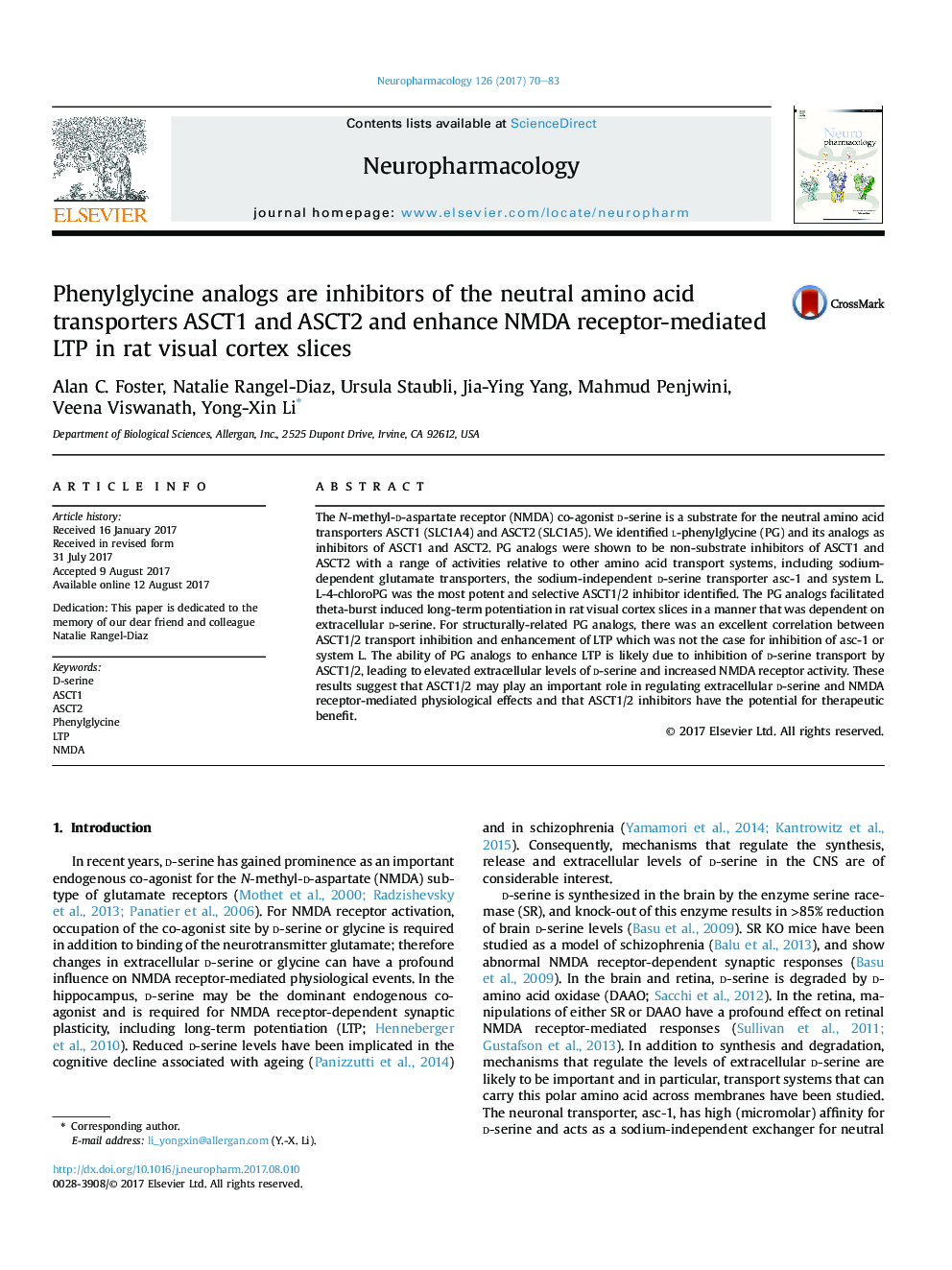| کد مقاله | کد نشریه | سال انتشار | مقاله انگلیسی | نسخه تمام متن |
|---|---|---|---|---|
| 5548706 | 1556591 | 2017 | 14 صفحه PDF | دانلود رایگان |

- d-serine is a substrate for the amino acid transporters ASCT1 and ASCT2.
- l-phenylglycine (PG) analogs inhibited ASCT1 and ASCT2 and related transporters.
- PG analogs enhanced theta-burst induced LTP in a d-serine-dependent manner.
- LTP enhancement by PG analogs correlated strongly with ASCT1/2 inhibition.
- ASCT1 and ASCT2 may regulate extracellular d-serine and NMDA receptor activity.
The N-methyl-d-aspartate receptor (NMDA) co-agonist d-serine is a substrate for the neutral amino acid transporters ASCT1 (SLC1A4) and ASCT2 (SLC1A5). We identified l-phenylglycine (PG) and its analogs as inhibitors of ASCT1 and ASCT2. PG analogs were shown to be non-substrate inhibitors of ASCT1 and ASCT2 with a range of activities relative to other amino acid transport systems, including sodium-dependent glutamate transporters, the sodium-independent d-serine transporter asc-1 and system L. L-4-chloroPG was the most potent and selective ASCT1/2 inhibitor identified. The PG analogs facilitated theta-burst induced long-term potentiation in rat visual cortex slices in a manner that was dependent on extracellular d-serine. For structurally-related PG analogs, there was an excellent correlation between ASCT1/2 transport inhibition and enhancement of LTP which was not the case for inhibition of asc-1 or system L. The ability of PG analogs to enhance LTP is likely due to inhibition of d-serine transport by ASCT1/2, leading to elevated extracellular levels of d-serine and increased NMDA receptor activity. These results suggest that ASCT1/2 may play an important role in regulating extracellular d-serine and NMDA receptor-mediated physiological effects and that ASCT1/2 inhibitors have the potential for therapeutic benefit.
Journal: Neuropharmacology - Volume 126, November 2017, Pages 70-83